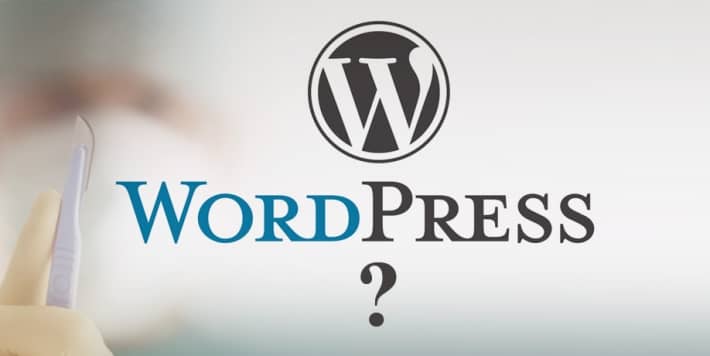
What About WordPress?
Open-source…and open to the masses. WordPress is a simple personal blogging CMS platform that has gained popularity with amateur designers and do-it-yourselfers because of its ease of use. Like all CMS platforms, the value is in that the client or site administrator can manage the site’s content once the site has been properly designed, developed, and tested.
Can I build my own WordPress site?
Yes, you can publish a WordPress website without knowing how or why it works, with little or no knowledge of code, design, etc. But, like anything else, a little knowledge can be a dangerous thing. While WordPress is great at simple blogging, if you are going to build a commercial website with it, you will need to do your homework. If you wish any real functionality, you will inevitably need to install 3rd party templates, plugins, and gadgets. This is where the trouble starts; all of these plugins are developed by anyone and everyone, with no screening process or quality control to vet the process. More plugins = more code conflicts and, I can tell you from experience, almost none of them work as advertised right out of the box. Without intimate knowledge of how these things work, how to customize, test, and troubleshoot them, you will more than likely end up with a rat’s nest of conflicting code and fatal errors, many of which will go undetected…just like your website.
Coding and technical issues aside, executing successful marketing, brand, SEO, and design strategies will be your biggest challenge. Choosing a cookie-cutter template with the same colors as your logo is where you will most likely start and then you’ll probably just wing it from there. The template you chose looked really amazing on the template club’s website, so your plan is bullet proof…right? The demo of the template you chose looked amazing because professional designers/developers set it up with beautiful images, fake content, and custom code. Remember: residual income from selling the same template tens of thousands of times is their goal. The template you downloaded consists of a wireframe and UI elements. Branding, content, SEO, layout, images, and design (everything that sold you on the template to begin with) are all up to you.
Conclusion
WordPress may be the right tool in the hands of a professional, but is not necessarily the best tool for your particular needs.
WordPress (through no fault of its own) has created a breed of diabolical web designers. Buyer beware!